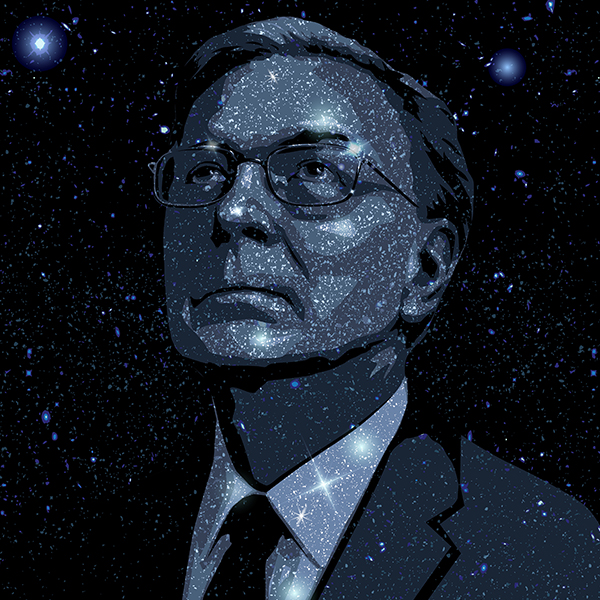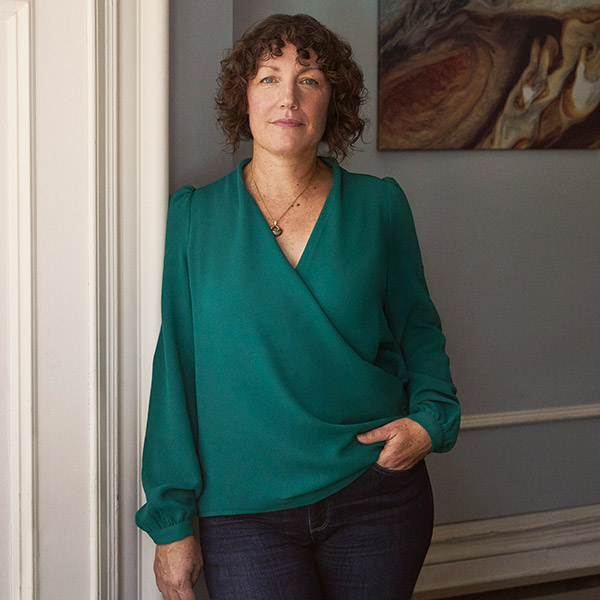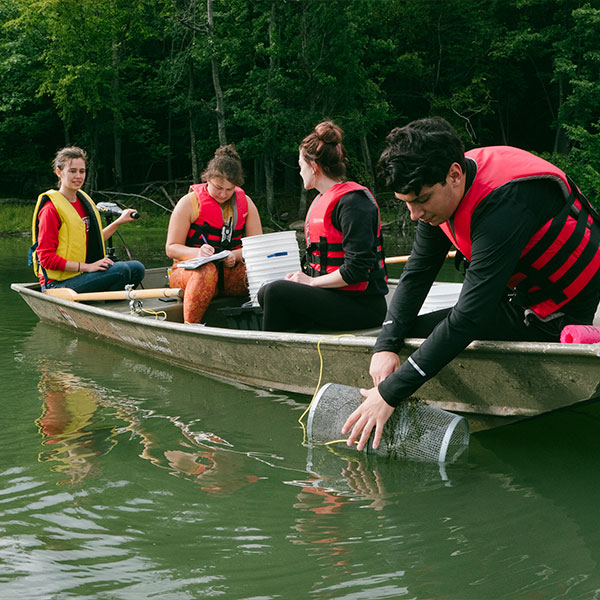Don’t tell Carlos Duarte, PhD’87, the oceans are dying. He’s heard it before, as one of the world’s most respected marine ecologists, and he has a clear message for those who lament about the state of marine ecosystems: “We’re within reach to achieve a positive future for our oceans but we have to stop focusing on the negative headlines. We’re a lot better off than we used to be, in fact.”
A professor of marine science at King Abdullah University of Science and Technology (KAUST) in Saudi Arabia, Duarte has published more than 1,000 papers on marine ecosystems. His work proposes nature-based solutions to global challenges, including climate change. He preaches hope instead of hopelessness.
If you’re a fan of TED Talks, you may have come across his widely seen video (1.7 million viewers so far) where he spoke about an under-recognized nuance of marine life: seagrass as a critical source of carbon removal. By some estimates, seagrass can store up to 15 times more carbon than comparable areas of rainforest.
But it is not only carbon where these flowering plants come into play, he says in the video. “The seagrass reef protects the shorelines, protects our infrastructure, protects our property, and protects our lives. And this protection becomes particularly important at a time when climate change is raising sea levels and is also leading to increasingly strong storms and cyclones.”
In talking to Duarte about the benefits of seagrass, his passion for the topic comes out in his excitable tone. “These aren’t the ugly ducklings anymore, but they have turned into beautiful swans that deserve significant attention, even if they’ve become largely ignored by NGOs and policy makers and the public at large,” he says in a Zoom interview from Saudi Arabia.
Two years ago, Duarte placed 12th on the Reuters Hot List, a listing of the world’s most influential climate scientists. He is one of the scientific experts advising the High Level Panel for a Sustainable Ocean Economy, a group of world leaders that includes U.S. President Joe Biden, French President Emmanuel Macron and Japanese Prime Minister Fumio Kishida.
Duarte is also the co-author of a heavily cited paper published in 2020 that argued that the recovery of the abundance and function of marine life could be achieved by 2050, if major pressures—including climate change—are mitigated. The study pointed to both the resilience of sea life and the effectiveness of conservation interventions, while making it clear that inaction would ultimately be catastrophic. “We have a narrow window of opportunity to deliver a healthy ocean to our grandchildren’s generation, and we have the knowledge and tools to do so,” said Duarte at the time.
A fan of sailing, as one would suspect of a marine ecologist, Duarte is also credited as the principal researcher leading the Malaspina Circumnavigation Expedition, which involved more than 500 scientists and sailed the oceans between 2010 and 2011 to provide a global assessment of the deep-sea ecosystem.
Duarte is proud to point out that more than 300 papers have been published as a result of that lengthy expedition, with more still being written today.
The wider scientific community has taken notice of Duarte’s commitment to promoting marine ecology around the world: he won the Five Oceans Award at the Mad Blue 2023 Summit in Madrid, an annual conference on sustainable development.
His approach to studying how to revitalize underwater ecosystems has its origin story at McGill, where he earned his PhD in limnology, the study of inland water systems. “By working on aquatic plants in lakes and rivers, it let me take a step back and assess what was important, and having a research focus on seagrass felt right for me,” he says.
Born in Lisbon, Duarte recalls an early childhood brimming with frequent visits to the beach with his family, the water enthralling him even at that young age. When they moved to Madrid when he was four, Duarte continued his hard lean into science and earned a bachelor’s degree in environmental biology from Autonomous University, his tuition fees paid for by his volleyball scholarships.
Sports took a back seat, though, when he moved to Montreal for his doctoral studies which he credits for further inspiring him to dedicate his life to marine ecology. Once that degree was done, and with a wife and Montreal-born daughter now, Spain’s siren song called to him once again, and he returned to Europe where he was a postdoctoral researcher at the Instituto de Ciències del Mar in 1987. He then worked at the Spanish National Research Council, the Blanes Centre for Advanced Studies, and the Mediterranean Institute for Advanced Studies in Mallorca.
As much as he enjoyed his next stint as a professor at the UWA Oceans Institute at the University of Western Australia, he couldn’t shake the feeling he wasn’t realizing his potential. “I learned a lot there, but I still didn’t have a lot of time for my own research,” Duarte says.
When he and his wife, also a marine scientist, were invited to Saudi Arabia to present a talk at KAUST, he was instantly impressed by “a world-class institution that provided supports to its scientists,” Duarte says.
In 2016, he was appointed director of KAUST’s Red Sea Research Center where he was given the freedom to tackle any research he wanted, buttressed with both financial and resource assistance that allowed him to tackle projects such as his seagrass surveying campaigns.
That support also allowed for some imaginative approaches. For one initiative, he and his team strapped 360-degree cameras onto tiger sharks in the Bahamas to uncover the extent of its massive seagrass meadow. The creatures are naturally drawn to seagrass habitats, and they proved to be excellent research assistants, helping Duarte and his team document what turned out to be the world’s largest seagrass ecosystem.
When Duarte looks back at how his years at McGill influenced his current work as an educator, he says he teaches his students a valuable lesson he learned. “I remember how my mentors were critical of some of my work, questioned things instead of giving me compliments, and that frustrated me at first,” he says. “But I was naïve. And I soon realized that constructive criticism can make us grow into stronger researchers with a widening capacity to think big and challenge the status quo.”


